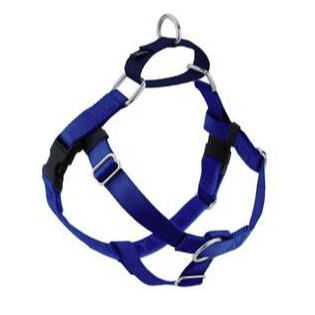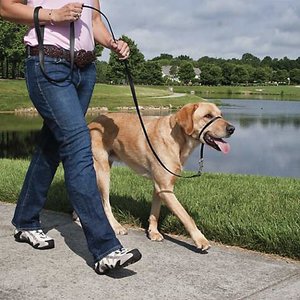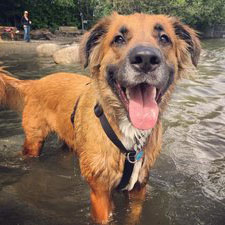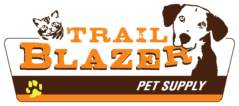Resources
Welcome to Trailblazer’s local pet resources and health information page. As a trusted pet supply company for over a decade, we are committed to providing sustainable and ethical products for your furry friend. Here you will find valuable tips and resources to keep your pet healthy and happy. Explore more information below on how Trailblazer can support you and your pet.
Pet Friendly Chico
We know how much you can’t bare to leave fido home when you want to head out for your morning coffee, or enjoy lunch on a patio. Based on our experience we have listed a variety places where fido is welcomed (they might even get a dog biscuit and a water bowl)! It is our recommendation to always call to verify before enjoying one of Chico’s fine establishments, just to make sure the rules haven’t changed. Happy travels!
Beatniks (Breakfast & Lunch)
Mom’s (Breakfast & Lunch)
Upper Crust (Breakfast & Lunch)
Tin Roof (Breakfast & Lunch)
Pluto’s (Breakfast & Lunch)
Bellachino’s Cafe (Breakfast & Lunch)
Fork in the Road
Sipho’s Jamaican (Lunch & Dinner)
Burgers and Brews
Madison Bear Garden (Lunch)
Chipotle (Lunch & Dinner)
Big Chico Burger (Park Ave) (Lunch & Dinner)
Tbar & Fusion Cafe- (Lunch & Dinner)
Beach Hut Deli- (Lunch & Dinner)
The Handle Bar
Parkside Grill
New Earth Market
Foodie Cafe
Wine Time
Hudson’s Gastropub
Pour House-Sometimes
Lab Bar and Grill (formally The End Zone)
The Allies Pub
Bidwell Perk (Now offers home made treats!)
Naked Lounge
Northbound Coffee
Coffee Ranch
Cal Java
Bellachino’s Cafe
Beatniks
Chico Coffee Company
New Earth Market
15th Street Cafe
Brave Coffee
Code3Coffee
Dutch Brothers
Cal Java
Java Detour
Coffee Ranch
Sin of Cortez
Tri Counties Bank
TrailBlazer Pet Supply
Tri Counties Bank
Umpqua Bank (6th/Esplanade)
Tomfoolery- boutique, downtown
Collier Hardware
Lowe’s
Home Depot
Best Buy
Magna Carta, downtown
Made in Chico, downtown
Melody Records, downtown
Art Etc., downtown
Holiday Inn
Best Western
Motel 6
Quality Inn, downtown
Heritage Inn Express
Oxford Suites
Upper Bidwell Park- North side of the road is off leash, while the right side (creek side) is leashed
Lower Bidwell Park- off leash until 8:30am, leashed the rest of the day
DeGarmo Dog Park (Eaton and Esplanade)
20th St. Park- Dogs must be on leash at all times
Wildwood Park- Dogs must be on leash at all times
Paradise Dog Park
Downtown Plaza- Dogs must be on leash at all times
Tree Farm- Dogs must be leased at all times
Bidwell Bark
Bark for Life
Walk, Woof, Wag
Treat Street
Christmas Preview
Taste of Chico
Pet Health Resources in Our Community
Wells Pet Nutrition: Our pet’s are unique; their breed, temperament, environment in which they live, life cycle, stress levels, anxiety, behavior and lifestyle are all factors that influence their overall health. Your pet’s health will change throughout their life and having a dedicated nutrition practitioner to help understand the changes can be a huge relief for pet parents. Lori Wells, offers monthly educational classes at TrailBlazer Pet Supply, *Pet Wellness Life Stress Scans, personalized nutrition consultations for pet’s and much more. www.wellspetnutrition.com
*The Pet Wellness Life Stress Scan uses biofeedback, which has the ability to read the energetic resonance that emanates from the hair and saliva samples. It is so much more than an allergy test for dogs and cats as it can identify imbalances and disturbances within the entire body. Biofeedback energy status analysis measures the body’s bio energetic balance or homeostasis in relation to various food and environmental factors that an animal has been exposed to.
Be Well My Pets: Be Well My Pet has been devoted to helping canines and felines and helping pet owners manage a wide range of health conditions,with therapeutic diets, herbal protocols and micro-current therapy for every dog, cat and condition. Be Well My Pet offers compassionate, qualified advice, based on education and experience. You entrust the life of your pet to those who supply your pet’s food and physical wellness . Let Be Well My Pet help your pet thrive! http://www.bewellmypet.com/
Vitality: Nurturing mind, body, and soul. Vitality offers a variety of services including Ashiatsu Massage, Raindrop Technique, and Essential Oil Education. We choose to work with Young Living essential oils due to quality and purity. They offer the following products: pest deterrents, calming blends, and more! Stay tuned for classes at TrailBlazer Pet Supply!
Dancing Daisies Botanicals: Dancing Daisies salves are healing body care products sustainably made in small batches with organic ingredients. https://www.facebook.com/pg/dancingdaisiesbotanicals/about/?ref=page_internal
Hemp Eaze: Tierra Sol Farm the makers of Hemp-EaZe products is Earth-centered, by farming organic botanicals for herbal healing, Locally Grown and Handcrafted, we focus on Nurturing your pets Naturally and encouraging others to learn about and use herbal and hemp products.
PAWSITIVE VIBRATIONS is owned by Sue Fisher, a Certified Bach Flower Practitioner for pets and their people. These amazing flower essences deal with emotional issues associated with stressful situations and life changes. They provide safe, non-toxic, energy-based support for coping during difficult times and help to promote well-being.
A Good Dog Day Training: Shelly Keel, Certified Professional Dog Trainer, has the experience and education necessary to resolve a wide range of behavior problems from jumping up, pulling on leash, barking and chewing to more complex problems such as separation anxiety, fear and aggression related behaviors. In addition to resolving behavior problems, she can help you navigate the challenges of Puppyhood, including that all-important “Puppy Socialization” period, to aid in the development of happy, confident, well-adjusted adult dogs. http://www.haveagooddogday.com/
Tranquil Paws: The Tellington TTouch Method of working with animals provides people with real solutions for challenges they may have with companion animals. It develops a deep bond between people and their animals and is a gentle method of training animals. It promotes we-being, helps reduce stress, and builds confidence in companion animals. This work consists of touches, body wraps, leading exercises, and the playground of higher learning. I offer group and private sessions as well as workshops. www.tranquilpaws.com
From a holistic perspective, allergies are not caused by allergens but rather result from an underlying imbalance in the immune system. The immune system must be compromised in some way for animals (and this includes humans) to be susceptible.
This means that allergy symptoms can often be eradicated by balancing the immune system using proper nutrition, supplements, and healing modalities like homeopathy and acupuncture. Until this rebalancing is achieved, preventing contact with allergens is key in helping your dog feel better.
Allergies in dogs can present as skin itchiness and irritation, gastrointestinal problems such as vomiting and diarrhea, and/or upper respiratory symptoms such as watery eyes, sneezing, and/or ear infections. Many holistic practitioners believe that if symptoms are left untreated or are suppressed through the use of drugs, they can ultimately result in more serious chronic diseases such as arthritis, urinary tract infections, and inflammatory bowel disease.
Common allergens for dogs include fleas and environmental factors such as grasses and pollens. A bad reaction to food does not necessarily indicate an allergy but is more likely an intolerance or sensitivity to a protein the dog has ingested. A true food allergy is less common and generally develops over a long period of time and as a reaction to a food the dog eats frequently. The most common proteins, and therefore the most common food allergens, include corn, wheat, soy, beef, chicken, eggs, and milk. Whatever the source of a food allergy is determined to be, it must be avoided as much as possible in order for treatment to be effective.
Allergy testing can provide useful information on environmental allergies, but hasn’t been as reliable in testing for food sensitivities. Dr. Jean Dodds, world renowned animal immunologist, researcher, and creator of Hemopet Bloodbank for dogs, has introduced and patented a new test called Nutriscan that analyzes a dog’s saliva for food intolerance and sensitivity to the most common allergens listed above. Talk to your local holistic veterinarian about obtaining this test.
Until definitive information is available on what your dog is allergic to, the following protocols can help ease the discomfort and provide some relief while improving the overall level of health:
Improve the quality of food; consider raw or home-cooked or buy premium quality kibble/canned.
Try a limited ingredient diet which includes a novel protein (one your dog hasn’t had before) and one carbohydrate. Since grains can be common allergens, they should be eliminated as well. Once your dog improves you can slowly begin to add other foods to help determine what he/she may be allergic or sensitive to.
Reduce the flea population on and around your dog or cat, using natural methods when possible. There are many such options; visit your local holistic pet care center for advice.
Enhance your dog’s immune system with nutritional supplements, such as anti-inflammatory omega-3 essential fatty acids (fish oil) and enzymes/probiotics. Enzymes help the dog’s digestive system break down proteins more completely so they are less likely to trigger a response. Probiotics help maintain the proper levels of beneficial bacteria in the gut, which builds a strong immune system.
Minimize your dog’s exposure to toxins to the best of your ability.
Minimize stress and avoid stressful environments.
Consider acupuncture and Chinese herbs (TCM) or homeopathy.
There are a number of natural remedies that can help your dog heal while alleviating symptoms. Here are some of the options:
Soothing, not suppressive, topicals such as calendula, lavender, aloe, and green tea for skin lesions and hot spots. Choose one with natural anti-bacterial properties to help soothe, calm, and heal.
Natural anti-inflammatory herbs and supplements like nettles, yucca, licorice; and natural antihistamines such as Quercetin, Vitamin C, and MSM.
Beta Thym – a plant derived steroid – that has cortisone-like effects without the side effects of synthetic drugs.
Antronex from Standard Process, a whole food/glandular supplement that supports the liver and the body’s natural antihistamine function.
If this approach does not help alleviate your dog’s allergy symptoms, ask your veterinarian to check for parasites, fungal and bacterial infections, and hormonal conditions such as hypothyroidism, all of which can create allergy-like symptoms.
Many veterinarians, both mainstream and holistic, will recommend cortisone and/or antibiotics to quickly help stop itching and thereby avoid secondary bacterial infections that can result when skin is damaged. These drugs can provide temporary but much needed relief and break the cycle of itching, but the best allergy remedies are those that support, rather than suppress, the immune system and gradually optimize your dog’s overall health.
Much of our overall health is predicated on a healthy digestive system. Current research indicates that around 70% of our immune system is located in or around the digestive tract, and that unhealthy systems are a contributing factor in the majority of chronic diseases.
For optimal health, dogs, cats, and people must have intestinal flora consisting of 80% beneficial bacteria. Healthy bacteria in the gut produce enzymes that improve digestion and the absorption of nutrients, decrease the risk of chronic problems such as colitis and irritable bowel syndrome, help detoxify the body, and protect against toxins. Poor nutrition, exposure to toxins and medications, and stress are some of the many factors that contribute to the destruction of beneficial bacteria. When an imbalance occurs, animals become more susceptible to constipation, diarrhea, throwing up, urinary tract infections, skin problems, allergies, and poor immune function.
Diet is not the focus of this article; however, no discussion of optimal digestion would be complete without mentioning the importance of a natural and healthy diet. The most important thing you can do for the overall health of your dogs and cats is to feed them the freshest and least-processed diet possible.
Here are just a few remedies that can be used for acute digestive upsets and for ongoing health maintenance. Chronic problems should be handled by a veterinarian, especially a good holistic vet, as there are many modalities such as homeopathy and acupuncture that can be restorative and curative.
Probiotics
One of the best supplements available to help restore and maintain beneficial intestinal bacteria is a good probiotic like Jarrow Pet Dophilus. There are many on the market. The best products will contain several different strains or species of good bacteria. Be sure to use a product with live and active cultures and keep it refrigerated. You can also add a live active yogurt to your dog’s food daily. This will be beneficial for any dog but is essential when giving antibiotics, which destroy much of the gut’s beneficial flora. Another product to consider for acute episodes of diarrhea is Immedicare GI. This high dosage probiotic paste (also known as Fast Balance) will very rapidly and reliably set things right.
Digestive Enzymes
Enzymes are helpful in breaking down proteins, fats, and carbohydrates for absorption in the small intestine, ensuring good digestion and enhancing assimilation of nutrients. They also help fight inflammation and swelling. There are many good enzyme products available, some combined with probiotics. Wobenzyme and Prozyme are two products to consider.
Slippery Elm
This herb, available in both liquid and powder forms, is made from the inner bark of the Slippery elm tree. It internally coats and soothes the mucous membranes while also absorbing toxins that can cause intestinal imbalances. Slippery elm is an effective remedy for gastritis, diarrhea, colitis, and irritable bowel syndrome.
L-glutamine
This amino acid helps stop inflammation of the large and small intestine and promotes new cell growth in the intestinal lining. It’s a great support for dogs with irritable bowel syndrome or other chronic intestinal disease. Improvement is not immediate, so plan to use it for several weeks or more.
Canned or freeze dried pumpkin
The fiber in pure organic pumpkin absorbs moisture in the large intestine and can be used to good effect in both diarrhea and constipation. Feed one teaspoon for small dogs, two teaspoons for medium dogs, and a tablespoon for large dogs. Too much fiber can cause problems, too, so don’t overdo it.
Homeopathic Remedies
Arsen-icum and Nux-vomica are two great remedies for gastro-intestinal upset. Consult your holistic veterinarian or homeopath for an appropriate remedy for your dog’s individual condition.
Health Consultations
For more ideas to support your pet’s individual digestive health talk to one of TrailBlazer’s knowledgeable staff! Lori Wells, Manager of TrailBlazer, is currently attending a Nutritional Therapy program. Together we can come up with the right recipe of products that will restore your pet to optimal health!
*Diarrhea and vomiting can be symptomatic of many conditions. All the above remedies can be helpful in restoring gastrointestinal health, but all acute conditions should be seen by your veterinarian. Consider an annual wellness check-up for your animal so you can catch any potentially serious problems early.
Dogs are born to work for a living. They’ve worked alongside us for thousands of years, and most are bred for a particular purpose, like hunting, herding livestock or providing protection. Dogs’ wild relatives spend most of their waking hours scavenging and hunting for food, caring for offspring, defending territory and playing with each other. They lead busy, complex lives, interacting socially and solving simple problems necessary for their survival.
The most common job for our companion dogs today, however, is Couch Potato! They no longer have to earn their keep and instead have to adjust to our more sedentary lifestyles. They get their food for free in a bowl and are often confined, alone and inactive, for most of the day. This lack of purpose leaves dogs no outlet for their naturally active tendencies—physical and mental—and it contributes to the development of behavior problems.
Another problem modern dogs face because they rarely work anymore is a lack of opportunities to exercise. Some pet parents make the mistake of assuming that if a dog has access to a yard, she’s getting exercise. But your dog doesn’t run laps by herself in your yard—or do much of anything besides waiting for you to come outside or let her back inside. It’s the interaction with you that counts!
Problems That Result from Lack of Exercise and Play
Dogs can be like young children. If you don’t give them something constructive to do with their energy, they’ll find something to do on their own—and you may not like it! Some of the most common behavior problems seen in dogs who don’t get enough exercise and play are:
Destructive chewing, digging or scratching
Investigative behaviors, like garbage raiding
Hyperactivity, excitability and night-time activity
Unruliness, knocking over furniture and jumping up on people
Excessive predatory and social play
Play biting and rough play
Attention-getting behaviors like barking and whining
Benefits of Exercise and Play
The good news is that keeping your dog healthy, happy and out of trouble with daily exercise is a lot of fun and provides many benefits, including:
Helps to reduce or eliminate the common behavior problems listed above, such as digging, excessive barking, chewing and hyperactivity
Helps to keep dogs healthy, agile and limber
Helps to reduce digestive problems and constipation
Helps timid or fearful dogs build confidence and trust
Helps dogs feel sleepy, rather than restless, at bedtime or when you’re relaxing
Helps to keep dogs’ weight under control
Before you Start your Dog’s Exercise Program
Check with your dog’s veterinarian before starting an exercise program. He or she can check your dog for any health issues that may be aggravated by exercise and suggest safe activities. Some size, breed and age considerations are:
Breeds with short or flat noses (brachycephalic breeds) can have trouble breathing when exercised vigorously, especially in warmer climates.
Exercise is great for energetic young dogs, but sustained jogging or running is not recommended for young dogs (under 18 months) whose bones haven’t finished growing.
Because large dogs are more prone to cruciate ligament injuries, arthritis and hip dysplasia, sustained jogging can be hard on their joints and bones, too. If you’ve got a large dog, make sure she’s well conditioned before you start jogging together.
Once a dog reaches her golden years, osteoarthritis can cause pain and lameness after strenuous exercise. It’s much better to discover that your once-sprightly dog’s joints can no longer handle long hikes, for example, before you hit the trail.
Exercising Your Dog
With today’s more sedentary lifestyles, dog parents are often challenged to find enough outlets for their pets’ considerable natural energy. Dogs are more athletic than us. But take heart—there are a variety of ways to exercise your dog, from activities that don’t demand much energy on your part to activities that exercise both you and your dog. Dogs’ need for exercise varies depending on their age, size, breed and individual traits. Most dogs benefit enormously from daily aerobic exercise (exercise that makes them pant, like fetch, tug, running and swimming), as well as at least one half-hour walk. Choose activities that suit your dog’s individual personality and natural interests. Experiment with the ideas below to see what’s most practical and enjoyable for her and for you.
Exercise That’s Easy on You
Giving your dog enough exercise doesn’t mean you have to be athletic yourself. If you’d rather not run around or take long, brisk walks, consider two approaches to exercising your dog:
Focus on brain, not brawn. Exercise your dog’s brain with food puzzle toys, hunting for dinner, obedience and trick training, and chew toys instead of excessive physical exercise.
Focus on games that make your dog run around while you mostly stand or sit still. Games that fit the bill include fetch with balls, Frisbees or sticks, Find It, Hide-and-Seek, catching bubbles (using a special bubble-blower toy made for dogs, such as the Bubble Buddy™), chase (a toy on a rope or stick), and round-robin recalls for the whole family. If your dog enjoys the company of other dogs, other easy options include taking her to the dog park, organizing play groups with friends or neighbors who have dogs or signing her up for dog daycare a few days a week. These options give your dog a chance to experience invigorating social play with other dogs. Please see our articles, Daycare for Dogs, Choosing Playmates for Your Dog and Dog Parks, for more information about finding friends for your dog.
Sitter For Your Critters: Sitter For Your Critters is a professional pet care company. Their clients know they are trusting their loved ones and their homes to a well-established, experienced, qualified, insured and bonded business. We are members of Pet Sitters International and our sitters are first aid/CPR certified. For more information visit:http://www.sitterforyourcritters.com/
Chico Holistic Pet Network: Chico Holistic Pet Network was created as a clearing house of information on holistic, complementary, alternative modalities for pets in the Chico area. As many people choose holistic modalities for their own self, many are looking for similar methods for their pets. http://www.chicoholisticpet.net/
Butte Humane Society: Butte Humane Society (BHS) is one of the oldest non-profit agencies in Butte County, California, working since 1911 to bring humanitarian care to dogs, cats and other animals. They are a Limited Admission shelter that strives to make animals as comfortable as possible during their stay. Adopt a dog or Cat today! www.butthumane.org
Enloe Medical Center: P.A.W.S (Pet’s Assisting with Service): Pet teams provide joy and diversion by visiting patients, visitors and staff members. Not just any dog can be a volunteer! The pet and its human handler must be registered with Pet Partners, a nationally recognized non-profit organization that certifies animals and handlers to ensure safety and standards in the healthcare setting. Once your dog is certified with Pet Partners, the human end of the team can become an official Enloe Volunteer. Pet visits are rewarding to patients and staff as well as volunteers (both human and animal). Learn more at petpartners.org to get started.
Chico Animal Shelter: The City of Chico Animal Shelter is owned by the City of Chico and operated by the City of Chico Police Department under Animal Services. Animal Services is responsible for enforcing all City animal related ordinances and state laws, including picking up dogs running at large and quarantining animals for Rabies observation. Visit their facility and adopt a dog or cat today! http://www.chicoanimalshelter.org/
North Valley Animal Disaster Group: Working with emergency services to educate the public about disaster preparedness, and assist in sheltering and evacuation of animals during a disaster. To work jointly with public and private agencies and organizations in the North Valley to promote the safety and well-being of all domestic animals and farm animals, including wildlife, affected by a disaster with emergency temporary sheltering, evacuation, medical care, identification for reuniting animals with their owners or adopting into good, suitable permanent homes. http://www.nvadg.org/
Self Help Videos

Freedom No-Pull Harness
The Freedom No-Pull Harness allows you and your dog to have a better relationship! Check out this training video by 2 Hounds Design to see if the Freedom No-Pull Harness is right for your dog. Visit our store to pick your favorite harness color and get your dog personally fitted today!

Gentel Lead Head Collar
One of the best walking tools on the market for an extreme puller. Check out the training video by Pet Safe to see if the Gentle Leader is the right tool for your dog. Visit our store to get your dog personally fitted today!

Balance Harness
The most diverse Harness providing multiple adjustments. Allows you to fit your dog’s individual body type as well as flexible leash attachments to accommodate your preferences. Check out the training video by Blue 9 Pet Products to see if this harness is the right tool for your dog. Visit our store today to get your dog personally fitted today!
QUESTIONS?
The TrailBlazer Team and the rest of our four-legged staff look forward to helping you with all of your pet care needs. In the meantime, please feel free to connect with us on Facebook and check out our reviews on Yelp!
